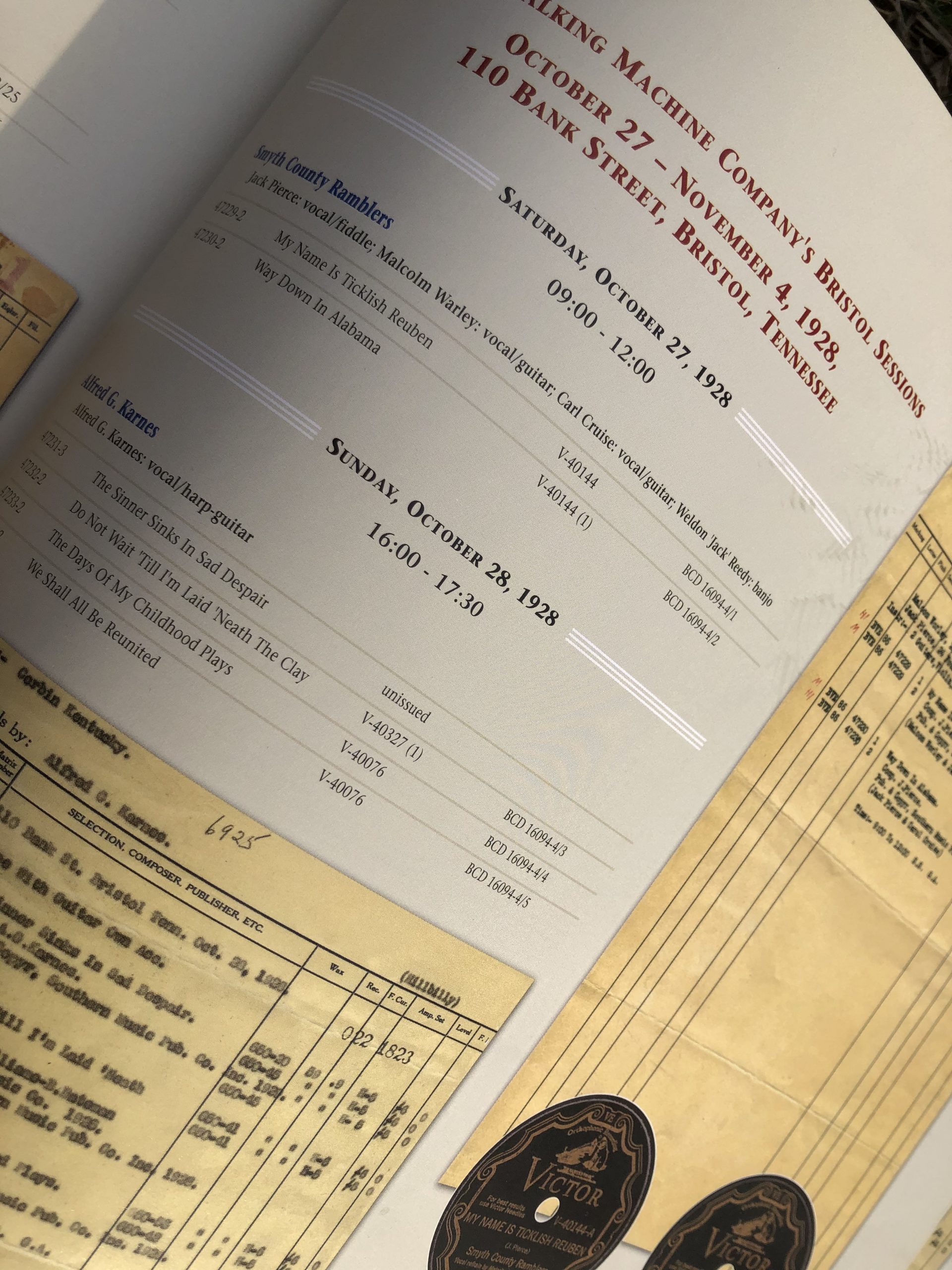If you are reading this blog post, you are probably familiar with why Bristol is considered by many to be the Birthplace of Country Music. During late July and early August of 1927, Ralph Peer of the Victor Talking Machine Company recorded several artists and acts at the Taylor-Christian Hat Company building – two of these became known as the “first family of country music” (The Carter Family) and the “father of country music” (Jimmie Rodgers). And Rodgers also became one of the best-selling and most influential country acts of all time.
Eager to repeat the previous year’s success, Peer returned to Bristol in the fall of 1928 to record more regional artists. Though none of the recorded performers from the 1928 Bristol Sessions achieved the fame and influence of the The Carter Family or Jimmie Rodgers, these sessions yielded a fascinating body of work that is overshadowed by the storied 1927 sessions. Both casual and hardcore fans of country music owe it to themselves to check out the 1928 Bristol Sessions – and here are a few choice cuts to get you started:
“Angeline the Baker,” Uncle Eck Dunford
Uncle Eck Dunford of Galax, Virginia, came to Bristol with Ernest Stoneman in 1927. A comedian who recorded several spoken word skits, Dunford’s musical selections were lighthearted as well. A song from the pen of Stephen Foster, “Angeline the Baker” – often called “Angelina Baker” – has become a standard in acoustic music circles, but Dunford’s recording is the sole recording of the song in the pre-war country music discography.
“Unknown Blues,” Tarter and Gay
Stephen Tarter and Harry Gay were the sole African-American act to record at the 1928 Bristol Sessions. A rare glimpse into the scene of bluesmen who were active around Kingsport, Tennessee, before the Second World War, this record leaves me wanting more than the two sides the duo recorded. Featuring clear vocals and two guitars playfully intertwined, it is no surprise this duo was a hit with audiences across the Tri-Cities.
“Goodnight Darling,” Clarence Greene
Cranberry, North Carolina’s resident master musician Clarence Greene made the trek across the mountains to record in Bristol in 1928. A fiddler who is often associated with Clarence “Tom” Ashley, Greene plays the guitar and sings on this side of his sole Bristol Sessions release.
”I’ll Be Happy,” The Stamps Quartet
The Stamps Quartet was established in 1924 as part of the Stamps Music Publishing Company (Dallas, Texas), a company that sold hymnals. It is a bit of an oddity that a non-regional group recorded in Bristol in 1928, but this recording highlights the beautiful gospel quartet singing that is often overlooked as a significant part of early country music.
“I Truly Understand, You Love Another Man,” Shortbuckle Roark and Family
The 1928 Bristol Sessions and Columbia’s 1928 Johnson City Sessions were recorded so close geographically and timewise that it is no surprise some artists appeared on recordings by both labels. George “Shortbuckle” Roark is one such musician, and both sessions yielded absolute classics in the old-time music cannon. I’ve also shared a bonus selection from the Johnson City recordings below – “I Ain’t A Bit Drunk,” George Roark


